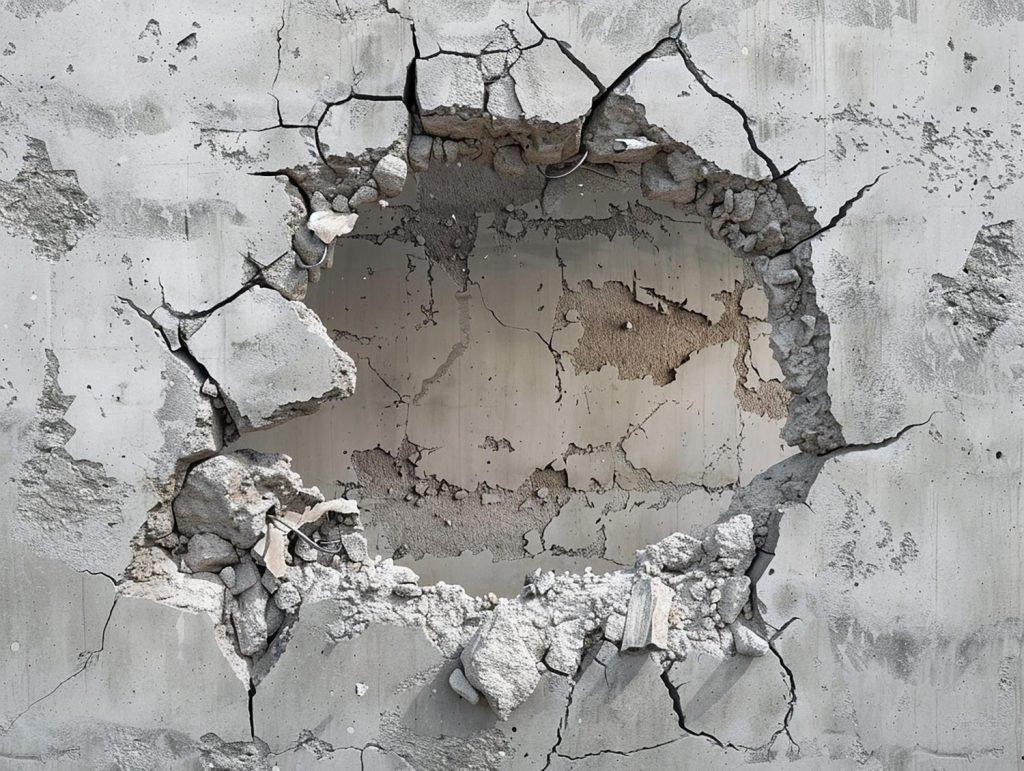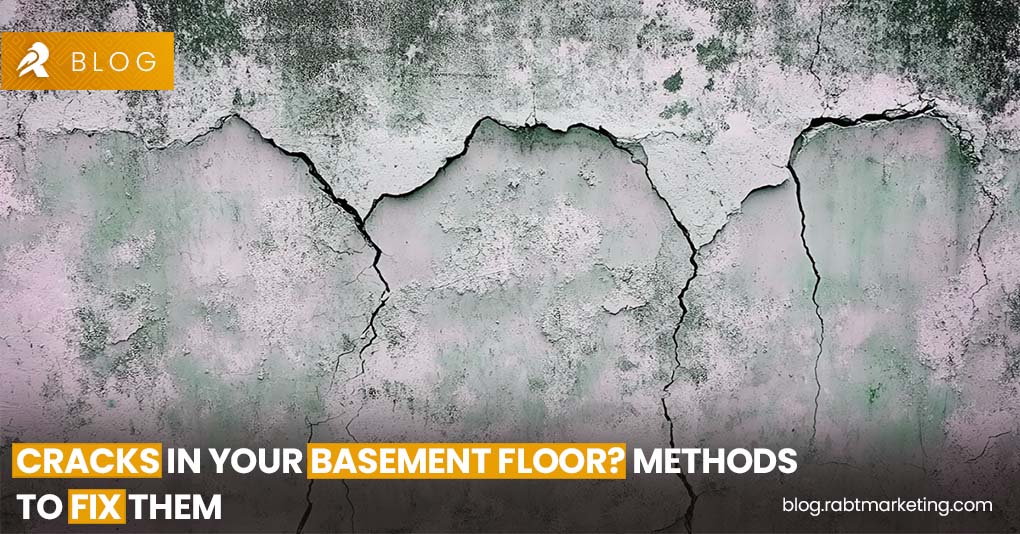Cracks in basement floors are a common problem many homeowners and residents face. They can happen for various reasons and may indicate underlying issues that need immediate attention. Cracks everywhere in walls can lead to serious consequences with respect to stability of the basement floor. If left unresolved, these cracks can lead to serious structural damage, mold growth, and costly repairs.
In this guide, we will try to cover the causes of basement floor cracks, different types of cracks, repair options, and preventive measures to protect your home.
Common Causes of Basement Floor Cracks

- Settling Foundations
As houses settle over time, changes in soil moisture, temperature, and environmental factors can cause foundation shifts, leading to cracks. These cracks may indicate structural issues that need professional assessment. - Water Intrusion
Water seeping through the foundation can weaken the soil underneath, causing cracks. Factors like poor drainage, high water tables, or lack of waterproofing can contribute to this problem. Addressing moisture sources is essential to prevent further damage. - Temperature Changes
Concrete expands in warm weather and contracts in cold temperatures, causing hairline cracks. These may worsen over time, especially in colder regions with freezing and thawing cycles. - Poor Construction Practices
Cracks can also result from poor construction, such as using low-quality materials, improper foundation installation, or ignoring soil conditions. A weak foundation may develop cracks as the home settles or environmental conditions change.
Types of Basement Floor Cracks

- Hairline Cracks
These small, surface-level cracks usually result from minor settling or temperature changes. While they are not typically a serious threat, they should be monitored to ensure they don’t worsen. - Settlement Cracks
Wider than hairline cracks, these can indicate foundation stability issues. If settlement cracks grow, it’s important to consult a professional. - Heaving Cracks
Heaving occurs when moisture or freezing temperatures cause the ground beneath the concrete to expand. This can lift the concrete, leading to cracks. - Diagonal Cracks
Diagonal cracks, usually at a 30-45 degree angle, suggest uneven foundation settling. These may indicate serious structural problems and require professional evaluation.
Repair Options for Basement Floor Cracks

- DIY Solutions
- Concrete Crack Filler: Ideal for small cracks, available at hardware stores. Clean the crack before applying for best results.
- Hydraulic Cement: Expands as it cures, creating a watertight seal, suitable for larger cracks or water intrusion.
- Epoxy Injection: Bonds concrete together for serious cracks, especially those related to water intrusion.
- Professional Repairs
For major issues like structural damage or severe water intrusion, hiring a professional may be necessary. Solutions include:- Epoxy Injection for restoring concrete strength.
- Foundation Repair methods like underpinning for stabilization.
- Waterproofing solutions, such as drainage systems and sump pumps, to manage water flow.
Preventive Measures
- Maintain Proper Drainage
Ensure gutters and downspouts direct water away from the foundation. Landscaping should slope away from the house to avoid water accumulation. - Seal Cracks Promptly
Addressing cracks early prevents them from growing. Regularly inspect your basement and seal any new cracks. - Monitor Humidity Levels
Use a dehumidifier to control humidity in the basement, preventing mold and further damage. - Inspect Your Foundation Regularly
Look for water damage, cracks, or structural issues, and address them before they escalate.
FAQ’s
- What Are the Signs of a Serious Basement Crack?
Widening cracks, water seepage, or growing cracks are red flags. Also, look for doors and windows that don’t open properly or sagging floors. - How Much Does Basement Floor Crack Repair Cost?
Costs can vary based on the severity. Minor repairs might cost a few hundred PKR, while major repairs could run into thousands. - When Should I Worry About Cracks in My Basement Floor?
If cracks exceed 1/4 inch or show signs of water intrusion, seek professional help. - Can I Repair Cracks in My Basement Floor Myself?
Yes, minor cracks can be repaired with DIY methods. For more serious issues, professional assistance is recommended. - What Is the Best Way to Seal Cracks in a Concrete Basement Floor?
Use hydraulic cement for larger cracks and epoxy for smaller ones. Ensure the area is clean and dry before application for the best results.
Read More:- Self-Healing Concrete: A New Trend and Revolution in Construction Industry
Conclusion
Cracks in your basement floor can be concerning, but understanding their causes and repair options can help you protect your home. Whether tackling small cracks yourself or hiring a professional, addressing them early is key to preventing further damage and maintaining your home’s value. Don’t wait until small cracks become bigger problems—act now to safeguard your investment.

